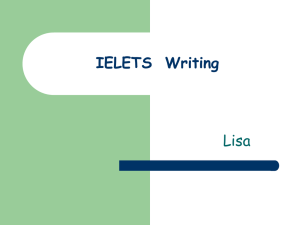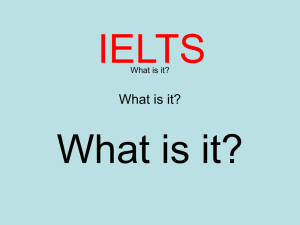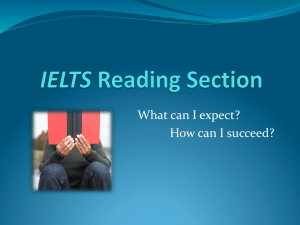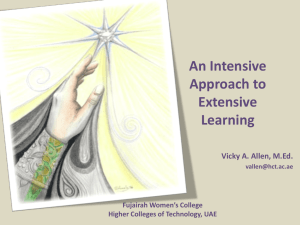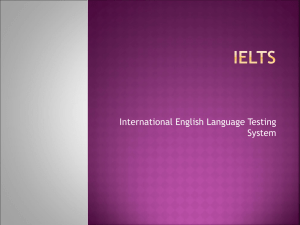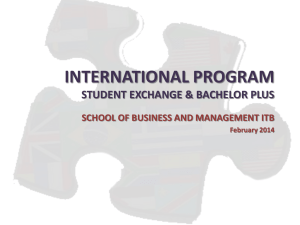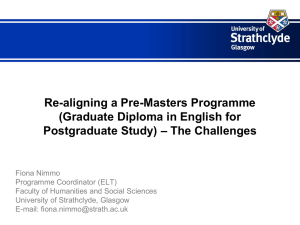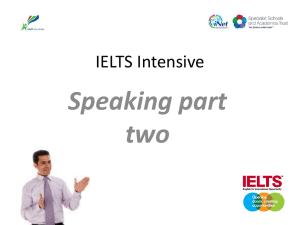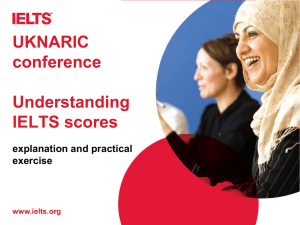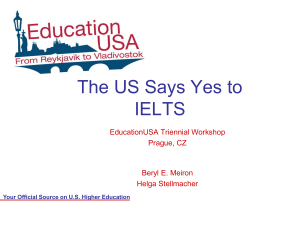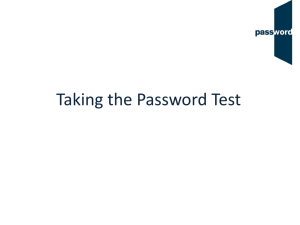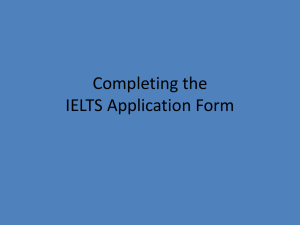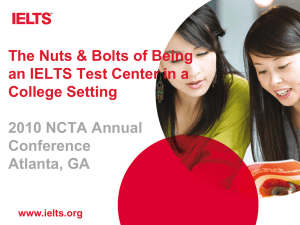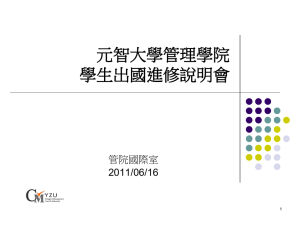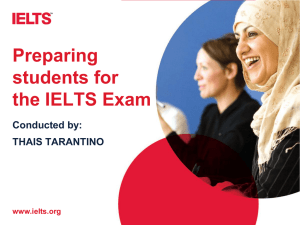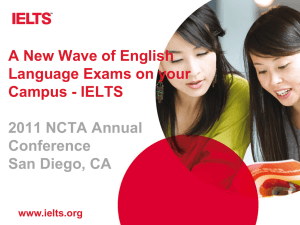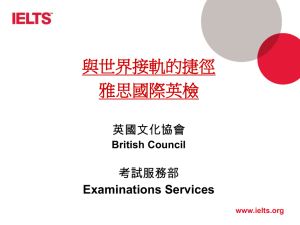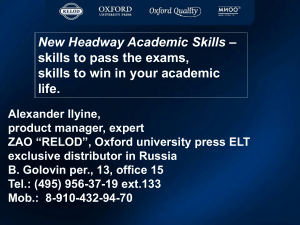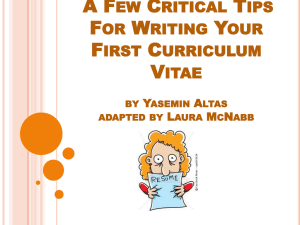Test, Washback and teaching
advertisement
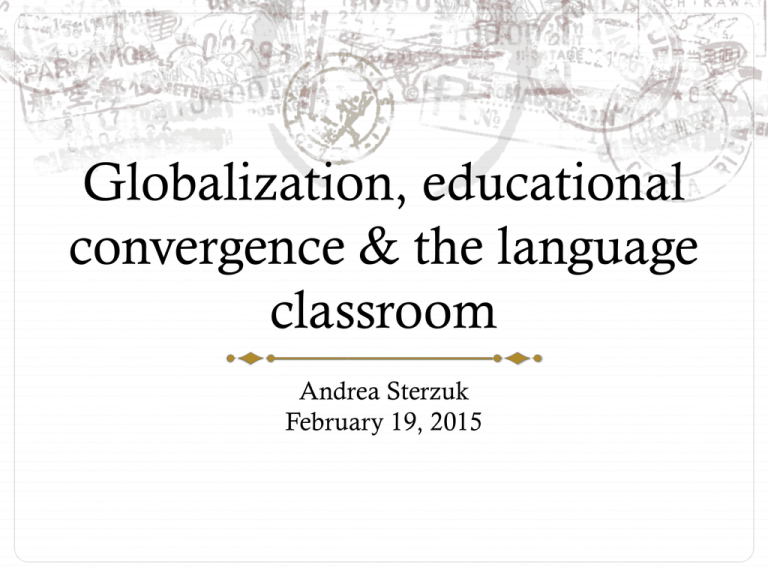
Globalization, educational convergence & the language classroom Andrea Sterzuk February 19, 2015 Global educational trends One characteristic of globalization is “the convergence of formal institutions within and across nations towards similar goals and operating structures” (Astiz et al., 2002, p. 67). Global educational trends Because “formal education is the most commonly found institution and most commonly shared experience of all in the contemporary world” (Dale & Robertson, 2003, p. 7), the seemingly global shift towards high-stakes language testing could be seen as another example of formal institutions across nations converging towards similar goals and operating structures. Exams & Materials John Gray argues that the “UK-produced ELT textbook is a promotional commodity; that is, it is not only a commodity in its own right, but one which also serves to promote English as though it too were a commodity” “Furthermore, the textbook serves to promote (whether directly or indirectly) a range of additional products, such as language courses, tests (such as IELTS and TOEFL), dictionaries, workbooks and so on” Exams & Materials Littlejohn (2012) “It does not take much insight to realise that the widespread provision of standardised examinations poses a significant influence on what gets into teaching materials, as materials are required to offer at least pre-examination experience” “Thus, as close inspection of any major commercially produced materials will show, ‘exam-type’ exercises are frequently found, marketed as preparing students for the option of taking a standardised, global exam” So let’s think about the ways these exams might affect you and your students. O’Loughlin, K. (2013). Developing the assessment literacy of university proficiency test users. Language Testing, 30(3), 363-380. What is the Washback Effect ? Washback refers to the influence of language testing on teaching and learning. In a sense, the language test takes the place of curriculum or syllabus. The test determines the activities that occur in the classroom. Your experiences with exams 1. As a language learner, have you ever experienced the washback effect of an exam on your own learning? 2. As a teacher, what are some examples of exams that potentially influence teaching and learning in your classroom? Alderson and Hamp-Lyons (1996) Common claims about the effects of TOEFL include: “unnatural teaching; students being taught inappropriate language-learning and languageusing strategies; students being taught ’TOEFLese’; courses that raise TOEFL scores without providing students with the English they will need in language interaction or in the college or university courses they are entering; and students taking TOEFL courses instead of ’real’ English courses” (Alderson & Hamp-Lyons, 1996, p. 280). Bailey 2009 High stakes tests like IELTS have an impact on how preparation courses are taught (Cheng, 2008). Washback is an area of importance for everyone involved in IELTS preparation courses (Taylor, 2005). Rea-Dickins and Scott (2007) note that there has been a lot of research on washback, particularly with the two major, international English language proficiency tests, IELTS and TOEFL. Bailey (2009) “The IELTS test is a high stakes test and students are under enormous pressure to do well so that they can immigrate, go on to university or return home to a good job” “International students enroll to study in an IELTS preparation course with expectations that they will improve their English in order to achieve as high a band score in the IELTS test as they need with little thought as to how they might achieve this (Barrett-Lennard & Bulsara, 2008; Hayes, 2003)” But does the test preparation also prepare them for the kind of English skills they need to do well in higher education? How does this test affect what goes on in EFL programs, particularly those located in universities? Bailey (2009) “Bellingham (1995) investigated the premise that the higher the level of English language skill the more likely a student is to do well academically in tertiary education in an English-speaking country” “Compared the IELTS scores of 38 intermediate level students who had completed one semester of a business course in an Auckland tertiary institution with their first academic assessment grade average.” “Language proficiency on its own was not found to be a factor that affected academic performance in further education. Although Bellingham found IELTS to be a useful diagnostic tool, she found that with an overall band score of 6 or more in IELTS students only had a 50% chance of passing the business course.” Bailey (2009) “Kerstjens and Nery (2000) also investigated the relationship between IELTS results and subsequent academic performance. They looked at 113 IELTS band scores of first year international students in an Australian university and compared them with first year semester grade point averages and found similar results to Bellingham (1995).” “Speaking and listening scores were not found to be predictive of academic performance.” Bailey (2009) “Dooey and Oliver (2002): 65 students from 15 different countries and with a total of 13 first languages were involved in their study.” “It was shown that there was no significant correlation between the IELTS scores and the results of academic assessments, with the exception of the reading scores, but this was only with the business students not with those studying science or engineering.” Bailey 2009 The area in which there is most agreement that IELTS preparatory courses do not adequately prepare students for tertiary study is writing (Coffin, 2004; Coleman et al., 2003; Dooey & Oliver, 2002; Green, 2006a; Green, 2006b; Kerstjens & Nery, 2000 and Moore & Morton, 2005; Read, 2007). Green (2007) compared IELTS preparation courses with EAP classes with particular emphasis on the writing sections. The three courses investigated were an IELTS test preparation course, an intensive language course and a course that was an intensive language course combined with IELTS test preparation. Green found that not all the writing skills necessary for tertiary education could be adequately taught on an IELTS preparation course and that one reason may be due to washback. The IELTS test does not require skills such as critical thinking or sourcing materials in either of the two writing tasks so these are not taught on the preparation courses. Questions What do you know of TOEFL & IELTS? How closely do these tests align with the curriculum of your language classrooms?
